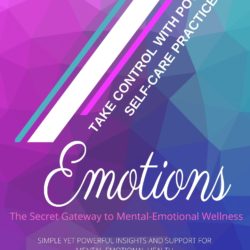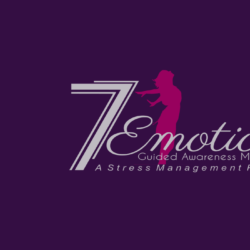What do I mean by mental chatter and obsessive eating? Your mind is always racing. You feel busy in your head with all that mental chatter. Your head is full of lots of thoughts swirling around. There are so many things to do but so little time. You’re so busy constantly brainstorming and planning. You’re admired for your multitasking skills with so many projects and tasks to consider but you’re health is falling apart. Your eating habits become influenced by this mental chatter. You’re gaining weight and wonder why?
If this sounds familiar I’d like to offer a simple suggestion to be aware of and consider changing. Thinking requires energy and one source of energy comes from the very foods we need to eat to support and maintain body function. Change your thinking and your body will follow.
Stress is a killer nowadays. Modern stress is usually refers to mental pressure. Years ago people were more physically active and the traditional diet was loaded with calories to support that sort of physical output of energy. Today people are mostly sitting behind computers, TV’s, and sitting while driving in a car. Such inactivity physically not only requires less carbs but it also conversely allows us to get busy thinking more which can be problematic as well. Excess thinking requires excess fuel – you want to eat more. Thinking requires a lighter fuel than lots of physical activity. Eating smaller meals more frequently would be more supportive. Instead of heavy, starchy foods and sugars that pack a lot of calories, try eating more fruits and veggies. It’s the same familiar recommendation but with an increased awareness as to why. A busy mind with less physical activity requires a low carb diet – plain and simple.
Next time, when you are mentally very busy, notice how you interact with food. Do you find yourself starving and unable to control yourself? Do you reach for anything, no matter how processed and bad it is, just to satisfy the urge? Also notice how hungry you are when you are more relaxed and comfortable with less mental chatter. I’m not talking about the couch potato syndrome of mindlessly eating and watching TV for hours on end. This is a talk about mindfulness – being mindful. It’s about feeling comfortable with less mental chatter and a more comfortable lifestyle pace in work and in our daily activities instead of gravitating towards frantic, disorganized thoughts to drag us through the hyperactive, daily grind.
Also consider what you can do to organize your thinking so it’s not so unproductive and draining. In Traditional Chinese Medicine it is said that worry, obsessive thinking and ruminating weakens the digestive process. All things have a cycle – from start to completion and around again. Worry or ruminating thoughts are endless with no satisfying sense of completion. This leads to unfinished and unsettling feelings like anxiety. No cycle is completed. There’s no sense of fulfillment only endless worry that leaves us feeling drained and empty inside. Motivation is depleted and unsettling emotions like anxiety or sinking depression seeps in.
Ancient practices in meditation, Tai Chi (Taijiquan) and Chi Kung (Qigong) have shown to be beneficial to health for many reasons but I’ll point out one – mindfulness. Be mindful of what you are thinking. Sometimes you need to stop or slow your thinking down so you feel more comfortable inside. Be aware of how you feel when you are relaxed and compare it to how you feel when you are busy and amped up inside which requires more energy. With so many raging thoughts it’s difficult to focus. Distraction becomes the norm.
Try this simple exercise – focus your mind on your breathing. When you’re relaxed notice how your breathing is deeper and more comfortable. When you’re stressed with lots of mental chatter notice how your breathing becomes perhaps tight, more constricted and uncomfortable. Look for comfort in slow, deep breathing. Next time your mind is racing and you feel uncomfortable refocus your mind on your breathing to slow the thinking down. Try to breathe about 20% to 30% more deeply with ease and comfort. Some people have difficulty trying to control their breathing. When this happens just let go – don’t try to control it. Be gentle and work on it slowly over time. Just sitting and focusing your mind on 1 thing can slow down the mental chatter to realize a calmer state of well-being for yourself and others around you. The frequency of how you vibrate affects the vibrational frequency of others around you. With the upcoming holiday season upon us we all sure need to feel that good, warm, calming vibration.
If you want to explore this topic further check out these recommended articles:
Simple Meditation for Stress Relief
Meditation – Regulating the Breath









